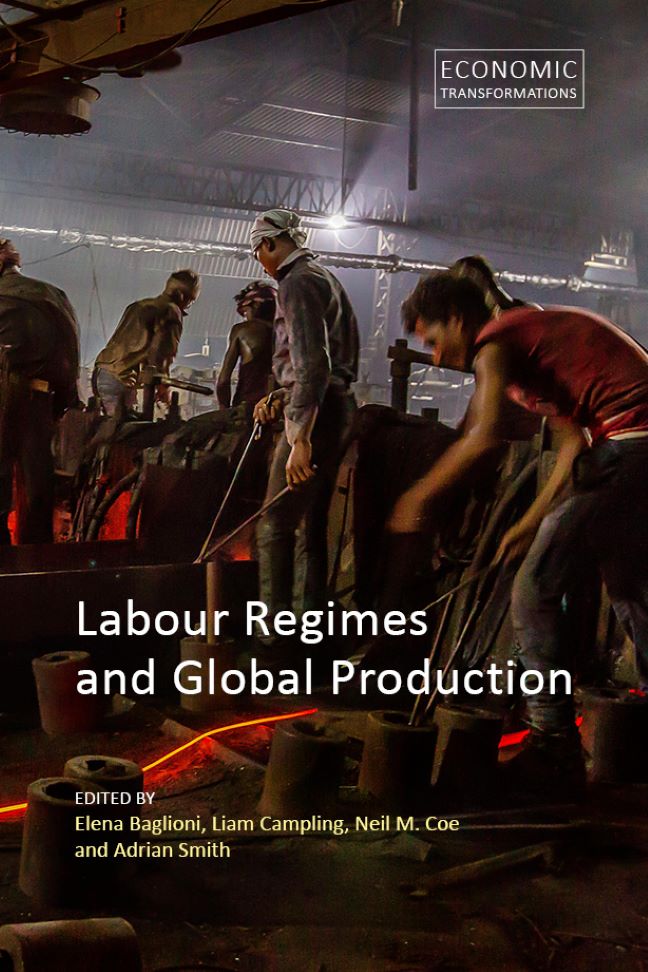4 - Modalities of Labour: Restructuring, Regulation, Regime
Published online by Cambridge University Press: 20 January 2024
Summary
Introduction
Why labour regime? To speak of a regime, according to the Oxford English Dictionary definition, is to refer to a “method or system of rule, governance, or control”, or a mode of regulation, perhaps; but the word also indexes a given order or normalized operating environment, “a system of organization”, as well as a received culture: “a way of doing things”. This array of meanings and significations represents a decent enough place to start when it comes to an assessment of the work that the word “regime” does in the field of labour studies, in which usage varies from the generic and somewhat nebulous to the analytically precise. Concerned primarily with the latter, this chapter traces an arc from Michael Burawoy's pioneering exploration of “factory regimes” through to more expansive and context-specific deployments of the regime concept in labour studies. This concept, following Marion Werner's (2021: 183) succinct formulation, is taken here to “describe the multiscalar articulation of state, capital and labor relations that determine how labor is managed and surplus distributed”.
Reflecting this distinctive methodological optic, the chapter charts a course between a pair of adjacent keywords in the evolving, interdisciplinary lexicon of labour studies, labour “process” and labour “market”, the first of which refers to the social and technical organization of work at the workplace or point of production, while the second relates to the terrain on which the buyers and sellers of labour power engage and interact, including the diverse circumstances under which wage labour is mobilized, remunerated and reproduced. A distinctive contribution of research on labour regimes, it will be suggested, has been to open up the spaces between the workplace-focused tradition of labour process theory, on the one hand, and the eclectic domain of labour market studies, on the other – tracing a path between the methodologically claustrophobic and the methodologically diffuse. If a limitation of conventional labour process studies is that, in explanatory terms, just about everything tends to be collapsed into the proximate context of workplace social relations and struggles, bracketing out the sphere of social reproduction, the role of the state, and so on, labour market studies often confront the opposite problem: that of including just about everything, from wage-setting and cultural norms to boundary institutions such as the school and the prison.
- Type
- Chapter
- Information
- Labour Regimes and Global Production , pp. 63 - 78Publisher: Agenda PublishingPrint publication year: 2022

